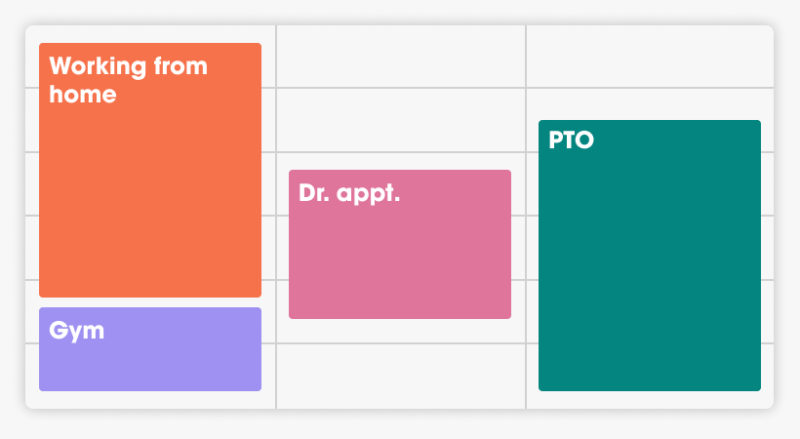
How To Beat Burnout For Managers: 3 Habits For Stress Relief
Are you feeling overwhelmed as a manager? Studies show that managers face a higher risk of burnout compared to individual contributors and executives. Managing stress is crucial for your well-being and effectiveness in leading your team. Here are three simple habits to help you navigate the pressures of your role and maintain balance:
1. Strategic planning for productivityEfficiency is key to reducing stress and boosting productivity. Plan your week meticulously to make the most of your time. Start by listing your tasks for the week or day, and delegate as much as possible. Hold yourself accountable for delegation by involving your direct reports.
Organize your day like a marathon, scheduling activities in intervals to optimize your energy. Consider tackling routine tasks like emails in the morning, reserving afternoons for more creative or strategic work. Alternatively, prioritize tasks based on importance to feel empowered and productive throughout the day.
2. Could this meeting have been an email? Or Slack? Or asynchronous doc?Unnecessary meetings can drain your time and energy, especially during busy periods. Politely decline meetings that aren’t essential to your role, or delegate attendance to team members when appropriate. Consider HBR’s guidelines for determining whether a meeting is necessary or if alternative communication methods can suffice.
Schedule meetings in blocks to minimize context-switching between tasks. Designate a “no meetings day” each week on your calendar to focus on deep work without interruptions.
For those meetings you need, set conditions to make them as productive as possible. Require an agenda or a comparable document. Task someone as a “scribe” to take notes and identify action items or next steps. If someone asks for a meeting with you, ask that they provide an agenda and/or any prep materials ahead of time. Choose what that needs to be. Is the morning of the meeting sufficient? Or to prepare do you need it three business days prior to the meeting?
3. Prioritize self-careCaregivers are frequently told they need to put themselves first. This is hard to hear for those caring for others due to employment or necessity. The reality is, that it’s hard to give when your “cup” is empty. It’s like the instruction given at the start of a flight – put your own oxygen mask on first so that you may help others.
Investing in your well-being is crucial for managing stress effectively. Make time for nutritious meals, quality sleep, and regular exercise, as these activities directly impact your performance and resilience.
Consistent exercise boosts stamina and mental clarity while reducing stress and negative emotions. A balanced diet is essential for optimal brain function, with foods like berries, walnuts, and spinach enhancing cognitive abilities.
Do you ever feel sluggish after working through lunch and think you need more coffee? Bad move. Coffee is fine in moderation, but the caffeine gives it diuretic effects, contributing to dehydration. Soft drinks? The sodium and sugar in them add to the issue. Also, did you know that being dehydrated by as little as two percent impairs your ability to perform tasks needing attention, psychomotor, and immediate memory skills? You don’t need a Stanley tumbler, per se, but try to keep some water close by.
Remember, while pressure is inevitable in any role, it’s essential to recognize the signs of burnout and prioritize self-care. By implementing these daily habits, you can better manage stress, maintain productivity, and lead your team effectively.
Are you questioning whether you’re a good fit as a manager?Sometimes businesses or individuals make the mistake of taking someone away from something they’re great at (and happy doing) and promoting them into management. Sometimes they forget that, for example, a top salesperson isn’t automatically a top sales manager. Managers are tasked with all sorts of responsibilities. Some may be new and in which they need training. Some may be so outside their comfort zone it grinds them down into burnout.
If you’ve ever wondered which path to follow, read this interview with Hired Engineering Manager Prakash Patel (or watch the video) exploring Engineering Manager or IC? Which Tech Career is Best for Me?
If your burnout is due to hiring, we can help!At Hired, we know engineering managers would rather be working on projects than thinking about recruiting or hiring, but we make it easy to find the right person for your team. We offer solutions for hiring managers including an easy-to-use platform, a tech skills assessment product, and technical sourcing services. These services are available short or long-term and handle tasks including sourcing, screening, shortlisting, and more.
Request a demo to see how our products and services can help you focus on your primary goal.
This blog was originally written by Whitney Ricketts in 2016, and updated by the Hired Content Team in February 2024.
Related blog posts

10 Things You Can Do to Reach DEI Goals
What You’ll Learn The first thing you must do to make meaningful progress on DEI...

2023 Survey Results: Top 3 Benefits Ranked by Engineers (Besides Salary)
From layoffs, hiring freezes, inflation, and the explosion of AI, we’ve seen significant shifts in...

Basic Questions Every Hiring Manager Needs to Answer (Checklist)
When interviewing candidates for a tech role, it’s critical it’s a two-way street. Here are...

Bold Predictions & Benchmarks: Master Tech Hiring in 2024 (VIDEO)
What do industry experts predict for tech recruitment this year? In this on-demand webinar, you’ll...

Difficulty Keeping Your Top Tech Talent? This Could Be Why (& What to Do About It)
Do You Employ the 61% of Tech Workers Who Plan to Look for a New Job in 2024? Are you concerned...

Hired CEO Reveals Predictions on Tech Hiring for 2024
Josh Brenner on the Talk Talent to Me podcast Last year was challenging on all fronts within...
